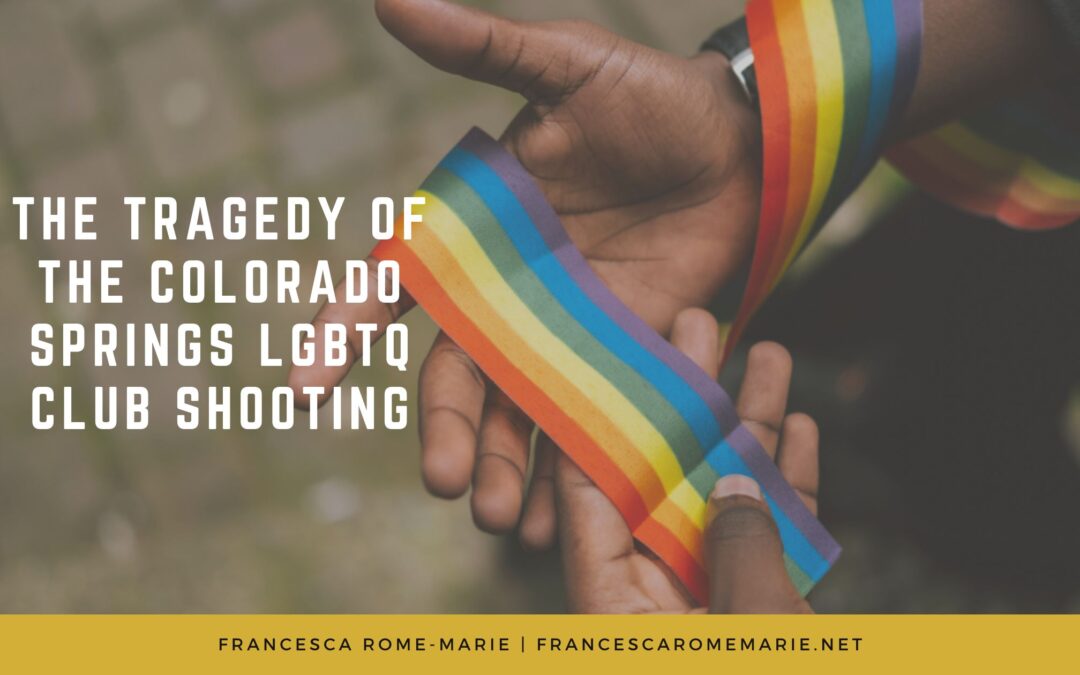The attack at Club Q, a staple in the LGBTQIA+ community in Colorado Springs, is a devastating tragedy. The facts surrounding the shooting are still evolving, but at least five people died, and 18 – 25 were injured.
From 11:56 pm – 12:02 am
Just before midnight, with Club Q full of people, a gunman entered and began firing. As revelry gave way to confusion and carnage, heroic patrons like Richard Fierro, Thomas James, and an unidentified trans woman, risked their lives to protect their family. Within minutes the suspect was arrested, but a community was forever changed.
Trauma in the Wake of a Mass Shooting
In the immediate aftermath, first responders and hospital workers rushed to save lives. A few weeks before victims with horrific injuries filled her ER, one doctor had added an LGBTQIA+ ally pin to her badge. The pin proclaimed, “you are safe with me.” These types of gestures are important every day in the medical profession to assure LGBTQIA+ patients they have allies. In the immediate aftermath of an attack like this, they take on deeper meaning.
Not all wounds are physical. As the Colorado Springs Police Department said, “We know many more community members were present at Club Q during the shooting, who may be victims with no visible injuries.” While victims, their families, and the community face the unspeakable pain of this attack local resources to find support are vital, and need your help.
Why?
The exact individual motive for the attack has not been confirmed, but it didn’t happen in a vacuum. As Colorado Springs wrestles with its own past in the wake of the shooting, questions are being raised about the larger context of the attack. When defined as an incident with at least 4 victims shot, as of November 23, there have been at least 607 mass shootings this year in the US – killing or physically wounding 3,179 people.
The US has simultaneously seen a dramatic rise in anti-LGBTQIA+ speech, activity, and policies. The attack, which fell on the eve of Transgender Remembrance Day, happened amidst truly terrifying statistics. Just days earlier, Human Rights Campaign released their annual report on fatal violence against transgender and gender non-conforming people in the US.
Anti-LGBTQIA+ Hate by the Numbers
HRC and the Center for Countering Digital Hate recently released a report finding a 406% surge in online slurs that erroneously connect the LGBTQIA+ community to child predation. And that nearly 1 in 5 US hate crimes is motivated by anti-LGBTQIA+ bias.
GLAAD has documented 124 attacks against drag events in 47 states. And its recent poll found “48% of all LGBTQ respondents and 72% of transgender respondents are fearful for their personal safety in the current political environment.”
In this time of mourning, we must be resolute in our dual purpose. As we support victims, we must also heal the community psychological body and end these senseless attacks.

